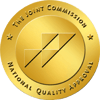Luxury rehab centers offer an upscale, private environment for those seeking treatment for drug and alcohol addiction. With luxurious amenities and personalized care, these facilities cater to individuals who want more than just standard addiction treatment. However, this level of care comes with a price.
- Home
- >
- The Estate News & Blog
Topics: Addiction, Treatment, Substance Abuse, Luxury Treatment, Luxury Rehab
What To Expect in Luxury Rehab Treatment?
Entering rehab can be an intimidating experience. However, luxury rehab facilities aim to provide a supportive and comfortable environment that enhances recovery. These luxury treatment centers focus on healing in a peaceful, private setting while offering high-end amenities and personalized care. From gourmet meals to holistic therapy, here’s a guide on what to expect in luxury rehab.
Topics: Addiction, Treatment, Luxury Treatment, Luxury Rehab
Repurposing Life’s Pain: Transforming the Past into Personal Growth
At Soberman's Estate, we often speak about the journey of recovery as one of transformation. Imagine your life experiences as pieces of a puzzle. Some are vibrant and beautiful, while others are sharp, jagged fragments of pain and struggle. These scraps of the past, much like compost in a garden, can become the foundation for new life, growth, and healing if we allow them to decompose and nourish us in new ways.
Topics: Treatment, Recovery, mindfulness, Sobriety
Overcoming Fear of Failure in Recovery: Turning Setbacks into Growth
For many men in recovery, the fear of failure is often lurking behind the dark in the background. The idea of relapse or falling short of sobriety goals can create a shadow of doubt and anxiety, often paralyzing progress. This fear can feel like an ever-present hurdle, making it difficult to move forward with confidence. But what if failure, or the threat of it, isn’t the enemy? What if it’s a necessary part of the journey? While (FEAR- False Evidence Appearing Real) can be paralyzing, a prudent rational concern can be very beneficial to recovery from alcoholism and other substance use disorders.
What is Luxury Rehab? A Quick Overview
When seeking help for drug or alcohol addiction, some people look for more than just standard treatment options. They want a facility that offers privacy, comfort, and personalized care. This is where luxury rehab comes in.
Luxury rehab facilities combine top-notch addiction treatment with high-end rooms and amenities. In this guide, we'll explore the key features of luxury rehab, its benefits, and what to expect on your recovery journey.
Questions Answered:
- What is Luxury Rehab?
- What is Luxury Rehab Like?
- Does Insurance Cover Luxury Rehab Treatment?
- Is Luxury Rehab Right For You?
What is Luxury Rehab?
A luxury rehab facility provides more than just basic care for drug and alcohol addiction. These facilities focus on comfort, privacy, and individualized treatment.
Patients often have access to private rooms, gourmet meals, and luxurious amenities such as spas, pools, and fitness centers. Unlike traditional drug and alcohol rehab centers, luxury rehabs offer personalized treatment options in a serene, often secluded, environment.
These rehabs cater to individuals looking for personalized care, often incorporating holistic approaches like yoga, massage therapy, and gourmet meals. They also offer advanced evidence-based treatments that address both addiction and mental health conditions.
Luxury rehab is ideal for individuals who need privacy and comfort during their recovery process. Professionals, celebrities, or high-profile individuals who prefer a secluded environment for their treatment often prefer this setup. Many people also choose luxury rehab for its high-quality treatment options and the ability to recover in a stress-free environment.
Your recovery starts today.
Reach out for the support you deserve.
Key Differences From Regular Rehab
The key difference between luxury rehab and regular rehab lies in the quality of care and the surroundings. Luxury rehab facilities offer a more comfortable and private experience, making them a preferred option for people who value discretion.
While regular rehabs focus on the basics of treating drug and alcohol addiction, luxury rehabs provide a more comprehensive and comfortable experience. The upscale living environment promotes relaxation, making the recovery process more enjoyable and less daunting.
What is Luxury Rehab Like?
A typical day in a luxury rehab facility involves more than just therapy sessions. You can expect top-notch care combined with access to a range of luxurious amenities and activities. Here’s a glimpse of what a luxury rehab experience is like:
Luxurious Amenities
Luxury treatment centers offer high-quality facilities, including private rooms, high-end furnishings, and resort-like environments. Many also feature pools, spas, and fitness centers.
Fine Dining
Many luxury rehabs serve gourmet meals prepared by professional chefs. Some even cater to specific dietary needs like gluten-free or vegan preferences.
Personalized Care
Treatment plans are often customized to meet the patient’s specific needs. This includes personalized therapy sessions, medical care, and managing withdrawal symptoms. Many high-end treatment centers specialize in treating drug and alcohol addiction while also addressing co-occurring disorders, such as depression or anxiety.
Privacy
Luxury rehabs highly prioritize privacy. Patients may experience treatment in a more secluded environment, making it appealing to those in high-profile careers.
High Staff-To-Client Ratio
With more staff members per client, luxury rehabs ensure that you receive close attention and care during your stay.
Holistic Approach
Many luxury rehabs incorporate a holistic approach, offering therapies like meditation, acupuncture, and art therapy in addition to traditional treatments.
Recreational Activities
A variety of fun and relaxing activities are available, from equine therapy to hiking and water sports. These activities aid in recovery by helping patients develop new hobbies and skills. These also aim to improve physical health and relieve stress, which aids in the healing process.
Heal in comfort and privacy.
Reach out today for premium dual diagnosis care.
Average Cost of Luxury Treatment
The cost of luxury rehab varies depending on the facility offering treatment and the services included. Because these rehabs offer luxurious amenities and personalized care, they tend to be more expensive than standard rehabs.
A luxury rehab facility typically costs anywhere from $30,000 to $80,000 per month. Some high-end centers might even exceed these figures, especially if they offer unique amenities like private chefs, personal trainers, or luxury transportation.
While the cost might seem steep, the level of care and comfort can justify the price for individuals who prioritize privacy and a high-quality experience during their recovery journey.
Does Insurance Cover Luxury Rehab Treatment?
While these facilities can be expensive, most insurance companies recognize the importance of drug and alcohol rehab for overall health. Most addiction treatment centers are covered by insurance. However, coverage may vary depending on the specific insurance company and the insurance plan you have.
Some luxury rehab centers work closely with insurance providers to help patients maximize their insurance benefits. Consult with the treatment center directly to determine whether your insurance plan can cover your stay.
Experience true recovery in luxury.
Contact us for specialized addiction treatment.
Is Luxury Rehab Right For You?
If you're struggling with drug or alcohol addiction and looking for a high-end treatment center, luxury rehab might be the right choice for you. These facilities offer the highest quality care in a comfortable, serene environment. Luxury treatment centers can provide everything you need to start your recovery journey on the right foot.
So how do you know if a luxury rehab is the right choice for you?
- Need for Privacy: If you are a public figure or someone who values confidentiality, luxury rehabs provide the privacy you need to recover without public scrutiny.
- Desire for Comfort: The luxurious amenities and accommodations at these facilities can make the detox and recovery process more manageable. If comfort is a priority, luxury rehab might be the best option.
- High-Quality Care: If you prefer personalized, high-quality treatment that goes beyond basic therapy, luxury rehab facilities offer top-notch care in a serene environment.
- Focus on Holistic Healing: If you want a holistic approach to your treatment, including activities like yoga, massage, and meditation, luxury rehab can provide this integrated care.
Finding Luxury Rehab in Arizona
If luxury rehab seems like the right fit, finding a treatment center near you is the next step. Many luxury rehabs have websites that offer virtual tours, allowing you to see the facility and its offerings before committing.
Soberman’s Estate is a premier men-only adult drug and alcohol treatment facility in Arizona. Our team provides a safe and serene environment for men requiring treatment services to address substance use disorders and more. If you or someone you know is struggling with addiction, help is always available.
Connect with our Admissions Director and begin your recovery with a free consultation by calling 480-571-9742, or sending an email at info@SobermansEstate.com.
It’s never too late.
Turn your life around and get the help you need.
Topics: Treatment, Luxury Treatment
I recently asked our clients what they enjoyed about our music therapy program led by Steve Inganamort, MM, MT-BC. Here are a few of their replies:
Topics: Addiction, Treatment, Music Therapy
The Power of Commencement Ceremonies at Soberman’s Estate
At Soberman’s Estate, our commencement stone ceremonies mark the incredibly transformative journey of each of our clients. These ceremonies are more than just the end of treatment—they symbolize rebirth, newfound strength, and the beginning of a life rooted in sobriety and purpose.%20(5).png?width=672&height=480&name=(672%20x%20480%20px)%20(5).png)
Topics: Treatment, Recovery, Alumni, Soberman's Estate, Healthy, mindfulness
How Horses Support the Journey from PTSD to Post-Traumatic Growth
Post-Traumatic Stress Disorder (PTSD) can feel like a dark cloud that lingers long after a traumatic experience, affecting one’s ability to function or find joy in life. Yet, there is a powerful and lesser-known possibility beyond PTSD: Post-Traumatic Growth (PTG). PTG is the positive psychological change that occurs as a result of struggling with traumatic experiences. It’s the ability to find new strength, purpose, and appreciation for life. One transformative tool for guiding people on this journey is equine-assisted coaching, where horses play an extraordinary role in the healing process. Soberman's Estate has horses on site and the clients participate in three Equine Therapy sessions per week.%20(4).png?width=672&height=480&name=(672%20x%20480%20px)%20(4).png)
Topics: Addiction, Treatment, Mental Health, Equine Therapy
Preparing for Life After Treatment: Building Confidence in Recovery
Completing residential treatment for substance use disorder is a significant milestone—one that marks the beginning of a new chapter in life. As you leave behind the structured environment of a residential treatment program like Soberman’s Estate and return to daily responsibilities, it’s crucial to equip yourself with strategies to successfully transition back into work, relationships, and personal growth.
While it may feel overwhelming at times, this stage of recovery can also be deeply rewarding. Here’s how you can navigate this transition with confidence and resilience.
1. Establish a Support System
Sobriety is a journey best traveled with support. Before leaving treatment, make sure you have a solid network in place. This may include an alumni program like the one we have at Soberman’s Estate, a local or virtual 12-step group or similar recovery group, a therapist, or a mentor. A strong support system will be vital in moments of uncertainty, helping you stay accountable and grounded.
Action Steps:
- Join an alumni group for regular check-ins with others who have completed treatment.
- Find a local recovery meeting or consider virtual options if in-person is not feasible.
- Join a men’s group, or a church group.
- Consider establishing a relationship with a sober sponsor or mentor.
2. Develop a Daily Routine
One of the most effective ways to ease back into daily life is by creating a routine. In treatment, you likely experienced structure around your day-to-day activities, which provided stability. Keeping a similar routine post-treatment can help maintain focus, reduce anxiety, and encourage healthy habits.
Action Steps:
- Set a consistent wake-up time and include morning practices such as meditation, walking, or journaling to center yourself and become present.
- Plan meals, work hours, and recreational activities ahead of time.
- Schedule time for self-care and relaxation to avoid burnout.
3. Practice Healthy Communication
One of the biggest challenges after treatment is rebuilding relationships, whether at home, with friends, or in the workplace. Learning to communicate effectively—being open about your needs and boundaries—is essential to maintaining your sobriety while fostering healthy connections with others.
Action Steps:
- Have honest conversations with those close to you about your recovery journey and the type of support you need.
- Practice active listening and non-defensive communication to strengthen relationships.
- Establish clear boundaries, especially in situations that could trigger stress or relapse.
4. Return to Work Gradually
Returning to work is a significant step, but it's important to ease back into it. Prioritize your recovery first, and consider a gradual return to the workplace if possible. A phased return will allow you to balance work responsibilities with ongoing recovery efforts.
Action Steps:
- Discuss flexible hours or workload adjustments with your employer if needed.
- Set realistic expectations and avoid taking on more than you can handle initially.
- Practice mindfulness techniques, such as deep breathing, to manage workplace stress.
5. Continue Learning and Growing
Treatment provides you with tools for staying sober, but ongoing education and self-development are key to long-term recovery. Embrace opportunities to continue learning, whether through personal development courses, therapy, or spiritual growth.
Why Taking Time Off for Treatment Could Be the Best Decision of Your Career
In today’s fast-paced, high-pressure work environment, success is often measured by productivity, ambition, and a relentless drive to achieve more. But what if the very qualities that propel you forward are the ones holding you back? For many professionals, the pressures of work can exacerbate underlying issues such as stress, anxiety, and substance use disorder. The idea of taking time off to address these issues might seem counterintuitive, but in reality, it could be the best decision you ever make for your career.
Topics: Treatment, Substance Abuse














